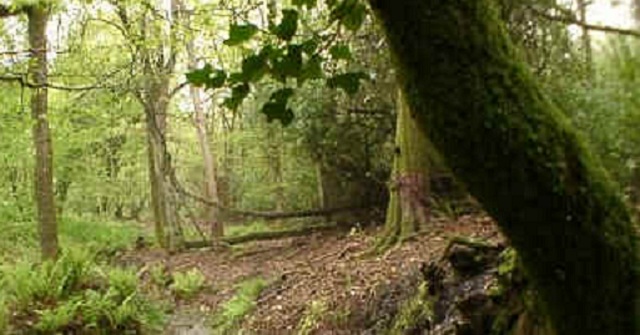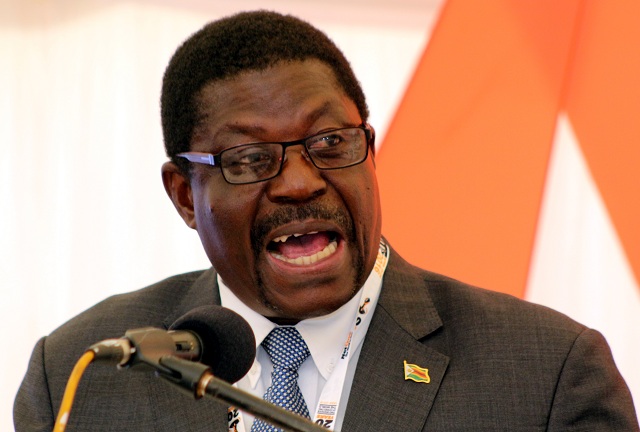Woodlanders reaping land reform benefits

Leonard Ncube
A GROUP of 118 determined resettled farmers at Woodlands Farm just outside Victoria Falls has mastered the art of utilising local resources to empower itself and improve food security.
Last month the villagers completed a massive solar-powered water project that is set to transform their lives.
A youth from the farm, Alfred Phiri, says the development is a major milestone for youths.
“We used to rely on fuel powered generators to pump water which was expensive because we would pay $1 per each household per day.
Now we have water free of charge which is cheaper for us,” said Phiri.
When the families were resettled at Woodlands Farm 15 years ago, they had to share the scant water sources with wild animals. Fast track to today, the villagers, who are beneficiaries of the popular land reform programme, are running a thriving irrigation project.
“We can now start our own gardening projects as youths and contribute to the economy,” said Phiri.
Woodlands farm which has since been subdivided into four villages is located right in the heart of Zambezi National Park.
The farm is about 10km outside the resort town. The land is suitable for cropping and safari activities such as hunting and photography. Rosemary Ndlovu, another land beneficiary, says the water project will ensure food security and sustainability at individual homesteads.
She says youths were being kept occupied as they were into vegetable garden projects, supplying green vegetables to Victoria Falls and Hwange.
Ndlovu says villagers are starting small-scale irrigation projects.
“We are grateful to the board for their efforts in the water project. This will improve living standards as well as enhance food security,” she said.
The villagers’ story started a few years after settling on the farm. They formed a cooperative meant to run the affairs of the farm, which included dealing with clients as well as managing resources.
In 2007, the villagers felt the cooperative was inept in performing its core-duties and made a grand move of forming a company which they named Words of Advice.
The company was to be run by a board of directors.
However, things have not been that smooth in transition. There is a fierce fight for leadership positions in the board by different individuals, a thing that is stalling development.
Villagers say proceeds from the hunting quotas are being wasted either by directors attending court cases or squandered by those in office.
Each year villagers and the board drag each other to court. There are a number of pending cases either at the magistrates’ courts or the High Court in Bulawayo.
In 2014, the late Chief Mvuthu of Hwange District suspended four of his headmen who were directly involved in corrupt activities at the farm. Headmen Josephat Sipulila, Charles Mpofu, Margret Mzamba and Sikandi Moyo were suspended on allegations of fraud and corruption involving $184,000 which they had allegedly accepted from a hunter without the knowledge of other villagers.
The four headmen were then part of the board running the affairs of the farm and villagers alleged they were squandering money while infrastructure was falling apart and boreholes running dry in times of drought.
Acting Chief Mvuthu, Bishop Sibanda, says the four headmen remain suspended.
He says there is a need for a totally new leadership at the farm if the squabbles are to end.
“The headmen haven’t been reinstated as we are still to look into the issue. However, I feel the best solution is to have a new leadership altogether because all those people have grudges and whoever gets into power will always want to settle a score. We will see what happens because at least these days it’s a bit quiet,” said the Acting Chief.
Over the years Woodlands Farm has been riddled with infighting resulting in villagers being divided into two factions fighting for power to run the board.
Villagers say directors of the hunting entity want monopoly rights at their expense.
They allege that Tendai Musasa, who leads the board, imposed himself.
Musasa says villagers were wasting time on trivial issues at the expense of development.
He says the massive solar water project, which started late last year and was completed last month, has the capacity to transform people’s lives, if they commit themselves.
The project, which is being undertaken in phases, is worth $100, 000.
Musasa says the first phase of the project worth $55, 000 had been completed.
Under this phase, every homestead and a school now have running water.
“The farm has earned more than $1 million in 10 years yet there was nothing to show on developmental projects.
We then resolved to solve water problems by installing a solar water system to be used for irrigation and consumption by all the four villages and the school,” said Musasa, who is based in Namibia.
The solar system has a capacity of 3.500KW.
“Our aim is to have a self-sustaining community where we fully utilise the rich soils on our farm than to waste time fighting for positions.
My prayer is that one day people will realise that it is best to build our community than to continue fighting,” said Musasa.
He says Woodlands farm has a potential to supply Victoria Falls and even Hwange and surrounding communities with vegetables and other farm produce.
“That can happen if we put the farm to good use. My plea is that we work together on this project so that we can as well contribute to ZimAsset.”
Musasa said the project will also end the human-wildlife conflict emanating from sharing water sources.
“The first phase cost $55, 000 and the second phase will cost roughly the same amount to give a total of close to $110, 000 for the whole project. Our aim is to solve water problems.
All homesteads now have running water which is solar powered. We are supplying the school and more than 30 homesteads with water after completing the first phase,” he said.
The second phase would involve drilling of solar powered boreholes to supply wild animals in the farm.
Musasa said the second stage will also see youths establishing an irrigation project.
“The second half will focus on wildlife where we will be drilling boreholes to supply wild animals with water and also for youths to start projects.
“We want to resolve the human-wildlife conflict. Remember we have an elderly woman who was killed by a lion here.
This is because wild animals stray into human settlements in search of water and food,” he said.
Water is being pumped for about three kilometres from the source to homesteads where each household either has suspended tanks or taps.
All along the farm has been using diesel powered generators which was proving costly for villagers.
Musasa says the community is still facing challenges to raise money for the last half of the project. The villagers are financing the project on their own using proceeds from their hunting quota.
Musasa commended the villagers for contributing piping material for the project. “Without the villagers’ input we wouldn’t have finished by now,” he said.
Moses Nkala, a village head from the farm said the project is a major step as villagers no longer have to walk long distances to access water from a stream.
“The board has helped with providing water and we now have supplies in our yards.
Initially we would walk close to five kilometers to fetch water from a nearby stream where we would put our lives at risk of being attacked by wild animals,” he said.









Comments